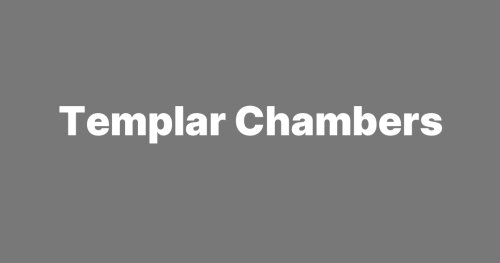Best Communications & Media Law Lawyers in Georgetown
Share your needs with us, get contacted by law firms.
Free. Takes 2 min.
List of the best lawyers in Georgetown, Guyana
About Communications & Media Law in Georgetown, Guyana
Communications & Media Law in Georgetown, Guyana, governs the regulation and operation of telecommunication and broadcasting services, ensuring that information is disseminated in a lawful manner and within the ethical guidelines set by local and international standards. This legal field encompasses a broad range of areas such as broadcasting rights, telecommunications regulations, content censorship, privacy laws, and intellectual property rights. Given Guyana's rapid advancement in telecom infrastructure and media growth, understanding these legal facets is increasingly important for both businesses and individuals involved in communication and media activities.
Why You May Need a Lawyer
Legal experts in Communications & Media Law can provide guidance in several situations:
- Broadcasting Disputes: Involves disagreements over content airing, licensing, and piracy issues.
- Telecommunications Regulation: Compliance with the Telecommunications Agency and regulations governing the operation of telecom services.
- Intellectual Property Rights: Protecting creative content from unauthorized use or distribution.
- Defamation and Privacy Concerns: Addressing issues related to slander, libel, and invasion of privacy in media publications.
- Advertising Compliance: Ensuring that marketing practices meet legal standards and are not misleading to consumers.
- Censorship and Content Control: Navigating restrictions placed on certain types of media content.
Local Laws Overview
In Georgetown, several laws and regulatory bodies oversee communications and media activities, including:
- Telecommunications Act: This law outlines the regulation of all telecommunication services, dictating operational standards and licensing requirements.
- Broadcasting Act: Establishes the legal framework for broadcasting, detailing licensing processes and content regulations.
- Cybercrime Act: Includes provisions to protect against digital crimes, impacting online media practices and information dissemination.
- Copyright Legislation: Protects the intellectual property of creators, ensuring rightful ownership and commercialization of media content.
- Freedom of Information Act: Promotes transparency and mandates the availability of information held by public authorities.
Frequently Asked Questions
What does Communications & Media Law cover?
This area of law covers legal issues related to broadcasting, telecommunications, the internet, print media, and any other forms of electronic communications, focusing on regulation, standards, and protections.
How can I ensure compliance with broadcasting regulations?
It is recommended to consult with a legal expert who can guide you through the licensing processes and compliance with the Broadcasting Act’s policies and procedures.
What should I do if I face defamation charges from media content I produced?
Engage a lawyer specializing in media law to assess the situation, explore defenses available under defamation laws, and represent your interests in court.
Are there any specific laws regarding online content in Guyana?
Yes, the Cybercrime Act addresses legal issues involving online content, including regulations against hacking, identity theft, and dissemination of harmful content.
Can I broadcast foreign content in Guyana without restrictions?
Broadcasting foreign content typically requires obtaining the necessary rights and permissions, and compliance with local content regulations needs to be ensured.
How can I protect my creative content from unauthorized use?
Register your work with the appropriate intellectual property office and consider legal action in cases of infringement, with the assistance of a lawyer.
What are the penalties for violating telecommunications regulations?
Penalties can range from fines and revocation of licenses to legal sanctions, depending on the severity of the violation.
How do telecommunications companies get licensed in Guyana?
They must apply through the Telecommunications Agency, comply with the stipulated criteria, and receive approval for operation within the jurisdiction.
What recourse do I have if my personal information is misused by a media company?
You can file a complaint under privacy and data protection laws, and pursue legal action for any damages caused, with the help of a legal professional.
How is advertising regulated in Georgetown?
Advertising must comply with consumer protection laws, ensuring truthfulness and honesty to avoid misrepresentation or misleading information.
Additional Resources
For those seeking further information or assistance, consider the following resources:
- Telecommunications Agency of Guyana: The main regulatory body for telecommunications, providing guidelines and licenses.
- Broadcasting Authority: Governs content regulations and licensing across media platforms.
- Guyana National Bureau of Standards: Offers guidelines on maintaining industry standards in media productions.
- Intellectual Property Office: Assists in protecting and managing intellectual property rights.
Next Steps
If you need legal assistance in Communications & Media Law, consider the following steps:
- Identify the Issue: Clearly define the problem or legal issue you are facing.
- Consult a Lawyer: Seek advice from legal professionals specializing in communications and media law in Georgetown.
- Prepare Necessary Documentation: Gather relevant documents and evidence related to your case.
- File Complaints: If applicable, file a complaint with the relevant regulatory body in Guyana to notify them of the issue.
- Consider Mediation: In some cases, alternative dispute resolution methods may be beneficial before pursuing legal action.
Lawzana helps you find the best lawyers and law firms in Georgetown through a curated and pre-screened list of qualified legal professionals. Our platform offers rankings and detailed profiles of attorneys and law firms, allowing you to compare based on practice areas, including Communications & Media Law, experience, and client feedback.
Each profile includes a description of the firm's areas of practice, client reviews, team members and partners, year of establishment, spoken languages, office locations, contact information, social media presence, and any published articles or resources. Most firms on our platform speak English and are experienced in both local and international legal matters.
Get a quote from top-rated law firms in Georgetown, Guyana — quickly, securely, and without unnecessary hassle.
Disclaimer:
The information provided on this page is for general informational purposes only and does not constitute legal advice. While we strive to ensure the accuracy and relevance of the content, legal information may change over time, and interpretations of the law can vary. You should always consult with a qualified legal professional for advice specific to your situation.
We disclaim all liability for actions taken or not taken based on the content of this page. If you believe any information is incorrect or outdated, please contact us, and we will review and update it where appropriate.












